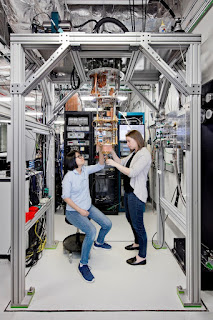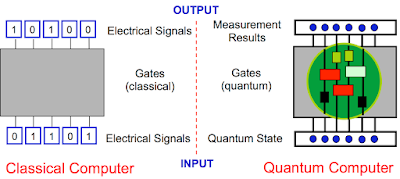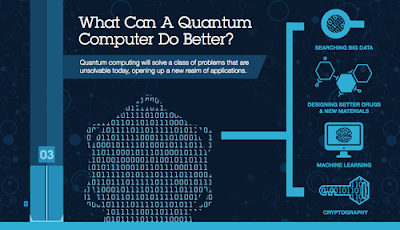Twitter Feed
DISA Chief Technologist States Plan for Cloud
In an interview reported on in this month’s Military Information Technology magazine, David Mihelcic, DISA Chief Technology Officer, has laid out his goal for the agency’s cloud computing initiative. As…
Google, GeoEye, Twitter. What a Combination!
On September 9th, Bob Lozano posted his kudos to GeoEye for a successful launch of GeoEye-1. (Hey Bob! Where’s that post on your “cloud failure” last week?) According to their…
RightScale goes Transcloud
Over the weekend, Maureen O’Gara of SYS-CON media reported that RightScale is now offering a “first in industry” capability to provide application management across multiple cloud infrastructures. It now offers…
A Bill to Outlaw Cloud Computing…..
… is what we may see if we don’t educate our lawmakers now! That seemed to be one of the main point at last week’s Google workshop in DC. Berin…
Military Information Technology Cloud Computing Collaboration
Today, we’re happy to announce what we believe to be an industry first. “Military Information Technology Magazine“, as the publication of record for the defense information technology community, is collaborating…
Is 99.999% reliability good enough?
According to Reuven Cohen in his recent post, Cloud Failure: The Myth of Nines , the whole concept of reliability may be meaningless. “In the case of a physical failure…
You Probably Use Cloud Computing Already.
56% of internet users use webmail services such as Hotmail, Gmail, or Yahoo! Mail. 34% store personal photos online. 29% use online applications such as Google Documents or Adobe Photoshop…
20 Real-Life Challenges of Cloud Computing
Nikita Ivanov of GridGain offers some excellent insight into the nuts and bolts of getting the cloud to work. Definitely worth a read. To summarize: Most likely you do NOT…
3Tera Announces Global Cloud Services
Last week, 3Tera has announced the availability of global cloud services, based on their AppLogic grid operating system. 3Tera is currently running data centers in seven countries (United States, Japan,…
- The release of a new API (Application Program Interface) for the IBM Quantum Experience that enables developers and programmers to begin building interfaces between its existing five quantum bit (qubit) cloud-based quantum computer and classical computers, without needing a deep background in quantum physics.
- The release of an upgraded simulator on the IBM Quantum Experience that can model circuits with up to 20 qubits. In the first half of 2017, IBM plans to release a full SDK (Software Development Kit) on the IBM Quantum Experience for users to build simple quantum applications and software programs.
The IBM Quantum Experience enables anyone to connect to IBM’s quantum processor via the IBM Cloud, to run algorithms and experiments, work with the individual quantum bits, and explore tutorials and simulations around what might be possible with quantum computing. Since its launch less than a year ago, about 40,000 users have run over 275,000 experiments on the IBM Quantum Experience. It has become an enablement tool for scientists in over 100 countries and, to date, 15 third-party research papers have been posted to arXiv with five published in leading journals based on experiments run on the Quantum Experience.
 The broad availability of quantum computing capability could prove to be a significant blow to current data encryption practices. In 2015 the US National Security Agency actually advised US agencies and businesses to prepare for a time when the cryptography protecting virtually all e-mail, medical and financial records, and online transactions would be rendered obsolete by quantum computing. The US National Institute for Standards and Technology (NIST) is also running a competition to spur work on post-quantum algorithms.
The broad availability of quantum computing capability could prove to be a significant blow to current data encryption practices. In 2015 the US National Security Agency actually advised US agencies and businesses to prepare for a time when the cryptography protecting virtually all e-mail, medical and financial records, and online transactions would be rendered obsolete by quantum computing. The US National Institute for Standards and Technology (NIST) is also running a competition to spur work on post-quantum algorithms. - Drug and Materials Discovery: Untangling the complexity of molecular and chemical interactions leading to the discovery of new medicines and materials;
- Supply Chain & Logistics: Finding the optimal path across global systems of systems for ultra-efficient logistics and supply chains, such as optimizing fleet operations for deliveries during the holiday season;
- Financial Services: Finding new ways to model financial data and isolating key global risk factors to make better investments;
- Artificial Intelligence: Making facets of artificial intelligence such as machine learning much more powerful when data sets can be too big such as searching images or video; or
- Cloud Security: Making cloud computing more secure by using the laws of quantum physics to enhance private data safety.
This content is being syndicated through multiple channels. The opinions expressed are solely those of the author and do not represent the views of GovCloud Network, GovCloud Network Partners or any other corporation or organization.
( Thank you. If you enjoyed this article, get free updates by email or RSS – © Copyright Kevin L. Jackson 2017)
Cloud Computing
- CPUcoin Expands CPU/GPU Power Sharing with Cudo Ventures Enterprise Network Partnership
- CPUcoin Expands CPU/GPU Power Sharing with Cudo Ventures Enterprise Network Partnership
- Route1 Announces Q2 2019 Financial Results
- CPUcoin Expands CPU/GPU Power Sharing with Cudo Ventures Enterprise Network Partnership
- ChannelAdvisor to Present at the D.A. Davidson 18th Annual Technology Conference
Cybersecurity
- Route1 Announces Q2 2019 Financial Results
- FIRST US BANCSHARES, INC. DECLARES CASH DIVIDEND
- Business Continuity Management Planning Solution Market is Expected to Grow ~ US$ 1.6 Bn by the end of 2029 - PMR
- Atos delivers Quantum-Learning-as-a-Service to Xofia to enable artificial intelligence solutions
- New Ares IoT Botnet discovered on Android OS based Set-Top Boxes




